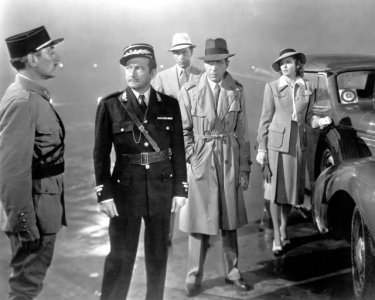Here are four titles that I like and I think most will agree all are classics. The Godfather, with Brando and a stellar cast; The Hustler with Paul Newman and Apocalypse Now, again a Brando movie.
...
There are a half dozen pictures that have deeply influenced me.
The Hustler is one of them:
The Hustler (1961) [long]
The Hustler was a life changing film for me. As an impressionable 17-year-old who fancied himself a budding pool hustler, I first saw the film upon its release in 1961. The effect that the experience had on me was monumental, and it's still possible to recall a shadow feel of it's emotional impact.
It's subject matter was unusual for its day, and was a seminal film in many ways. There had been movies about golfers, baseball players, tennis players, etc.; but never a film about a seedy pool hustler. The public was not even aware that this type of activity existed. It was based on the 1959 book of the same name by Walter Tevis, himself a pool devotee. The excellent screenplay by Sidney Carroll was fairly faithful to the novel, with a major exception regarding the denouement of Fast Eddie's girlfriend, Sarah. There was fine direction by Robert Rosen who was also a frequent customer of the New York pool rooms, and was aware of Gleason's above average abilities with the pool cue. Rosen was able to guide the production into a sense of authenticity.
The acting couldn't have been any better. It's as if everyone was born to play their respective parts. George C. Scott carried on his cut-throat, abrasive, dominant character acting that was introduced two years earlier in
Anatomy of a Murder. Piper Laurie was perfect as the crippled alcoholic intellectual who was trying to find herself. Jackie Gleason fit his role perfectly with class and style. Paul Newman stated that he had over-acted his part, and in hindsight would have liked to tone it down a little. But that type of performance is always appreciated and remembered by the public.
Newman established himself as an expert at playing handsome, devilish rogues, which he was to hone in many more pictures, most notably
Hud,
Harper,
Butch Cassidy and the Sundance Kid, and
The Sting.
The film score by Kenyon Hopkins written in the jazz idiom was tasteful, but exciting. Few scores --another similarity to
Anatomy of a Murder-- had used jazz exclusively up to that time, and here it was a perfect match. I can still hear the strummed major 9th chord underlying the ending of the film.
The movie seemed so real and so familiar. I fell in love with Sarah, and to this day am a fan of Piper Laurie's. I spent several years looking for a girl like Sarah, but to be honest, when I finally found one, it didn't play out too well. I even traveled to Ames' Pool Room in NYC on 46th St. west of Broadway. I got into a game of rotation with the off duty cook for $2 a pop, and he almost busted me. Had enough jack left for one more trip to Geenwich Village, then onto a Trailways outta town.
A word about the subject matter. Its pool/hustling portions were very authentic because several involved in the production had real life experience with gambling and pool. However the character "Minnesota Fats", along with all the other characters, was pure fiction, as attested by Walter Tevis. Shortly after the movie came out, Rudolph Wanderone, aka New York Fats, was given a suggestion by Paulie Jansco (of the Johnston City World's Pocket Billiards tournaments) to go down to the local theater, set up a card table, and represent yourself as the "real" Minnesota Fats. Wanderone was a tremendous self promoter, excellent pool player, story teller, and B.S. artist. He parlayed the hoax into a fortune.
The Hustler was one of a small group of films from the late '50s and early '60s that ushered in a new type of realism-- both in action and in personal relationships. The love interest was complicated but alluring. Eddie didn't realize what he had in him, both emotionally and in his pool playing fortitude. In the end he found out just what those facets were, and became a better man because of it. The book develops those characteristics very well, but Carroll's screenplay pushed the story further, and arguably made a better tale because of it.


